Author: BY
Harry Young-R.C.E.
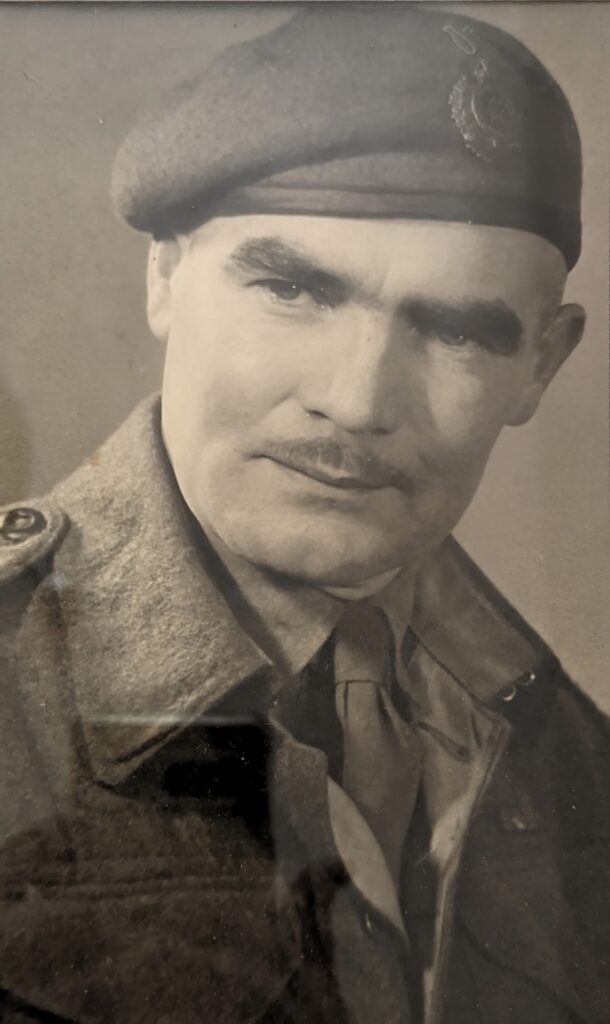
Harry Young enlisted in the Canadian Armed Forces in 1939. He was made a lieutenant in 1941. He was posted overseas on July 30th, 1942 landing in Liverpool. In Septemeber 1942 he joined the First Canadian Army Headquarters in the RCE works section.
He married Jean Cairns at a church in Cuckfield, Sussex, United Kingdom in October 1942.
After extensive training in England, the group crossed over at Normandy about a month after D-day. Harry was a captain then and was decorated during that time in Europe. He recalled building Bailey bridges over the Rhine near Nijmegen Holland to allow the Allied forces to cross over the river to enter Germany.

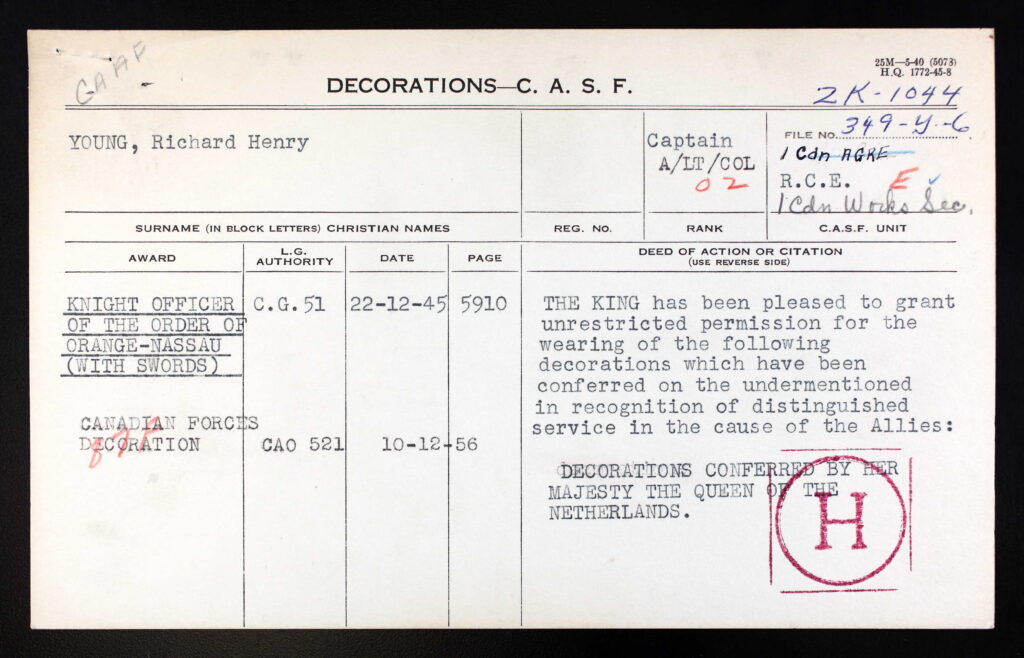
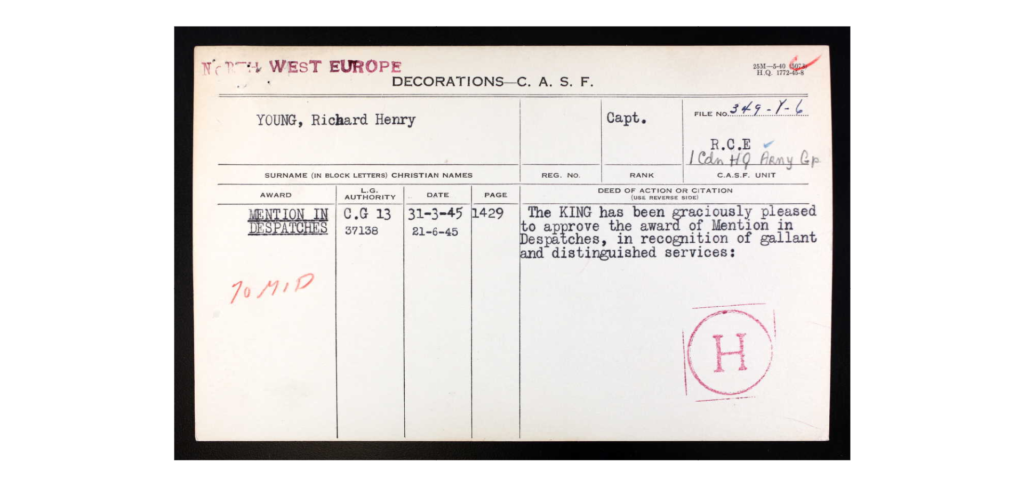
The Cairns Family in Bruce County
John Cairns and Peggy Milloy had 13 children. As these children matured they found a paucity of affordable farmland in York County. Further west, in Bruce County, three treaties were signed between the crown and the indigenous tribes in the area (Chippewa and Saugene Indians) between 1834 and 1854. In 1855 the land was surveyed and in 1856 lots and farm lots were put up for sale.
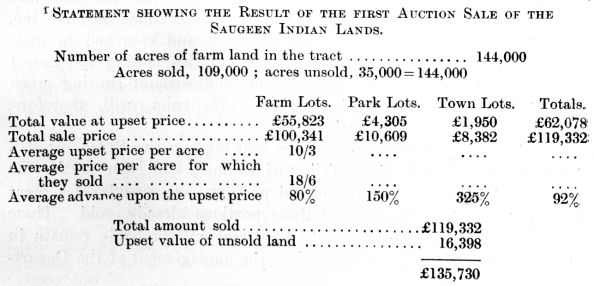
This available farmland attracted many of the children, and their cousins to make the move to Bruce County.
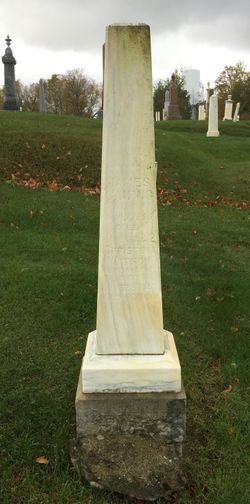
Cairns in Port Elgin Cemetary-Sanctuary Park
https://www.findagrave.com/cemetery/1998289/memorial-search?firstname=&middlename=&lastname=cairns&cemeteryName=Sanctuary+Park+Cemetery&birthyear=&birthyearfilter=&deathyear=&deathyearfilter=&memorialid=&mcid=&linkedToName=&datefilter=&orderby=r&plot=&page=1#sr-64557920
Margaret Malloy
Margaret “Peggy” Malloy
When Margaret “Peggy” Malloy was born 08 FEB 1808 • Kilchenzie, Argyleshire, Scotland, United Kingdom, her father, Neil Milloy (also spelled Molloy), was 44 and her mother, Isabel Watson, was 43. She married John Cairns on 30 January 1827, in Thornhill, York, Ontario, Canada. They were the parents of at least 7 sons and 5 daughters. They farmed in King Township, York, Ontario, Canada and her husband, died in 1879. In the 1881 census, the farm was divided between her sons James and William, with Peggy living in the original house with William.

She moved to Port Elgin in Bruce County a few years later (by July 1885) , along with James and his brother Adam was already farming there in 1880 with his wife Esther Cherry who was from Conc 18 King Twp and whose parents were from Ireland. His brother Neil had moved to Bruce County in 1855.
She died on 22 February 1888, in Bruce, Ontario, Canada, at 81, and was buried in Schomberg, York, Ontario, Canada.
Margaret’s sister Isabella Malloy (1815) married John’s brother Donald Cairns (1804) and purchased John’s first farm on Conc 6 Vaughn Township. In 1878 there were at least six Malloy farms in the area south of Laskey..
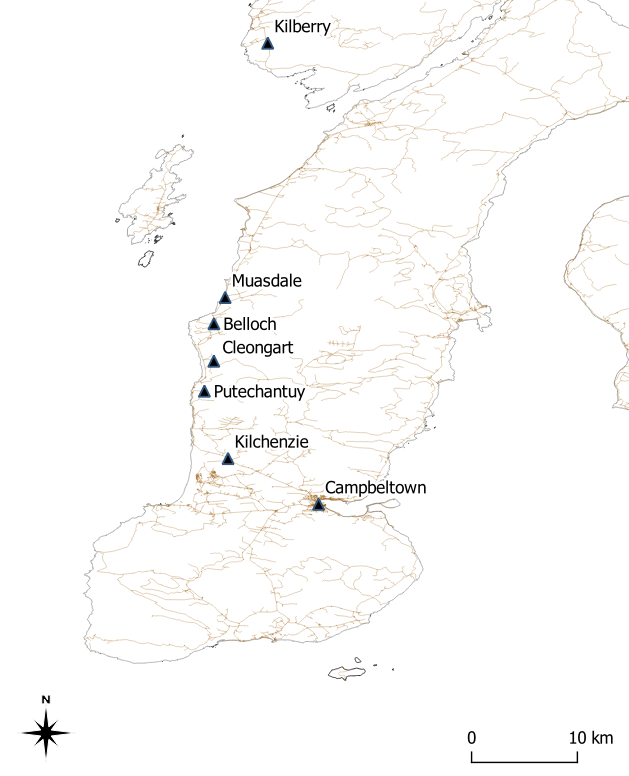
Campbellton, Kintyre Peninsula

Thomas and Ann Cairns, and their children left Campbeltown, Scotland, in 1831 to purchase farmland in York County, Ontario. This was a time of the Highland Clearances. Many farmers and even shepherds were losing their land leases to more powerful people. and the only way to survive was to emigrate.
Campbeltown is the principal centre of the Peninsula of Kintyre, which is 40 miles (65 km) long and protrudes into the Atlantic.
Campbeltown, known initially as Dalruadhain, was the seat of the kings of Dalriada. St. Ciaran (Kieran), one of the Twelve Apostles of Ireland, landed there in the 6th century, after which the site was renamed Kilkerran, afterward Kinlochkerran. Later, James, the Fifth transferred the territory from the MacDonalds to the Campbells of Argyll, who gave it their family name. No memorial of its antiquity has survived, but a finely sculptured granite Celtic cross (c. 1500) stands in the marketplace, and there are ruins of an old chapel.
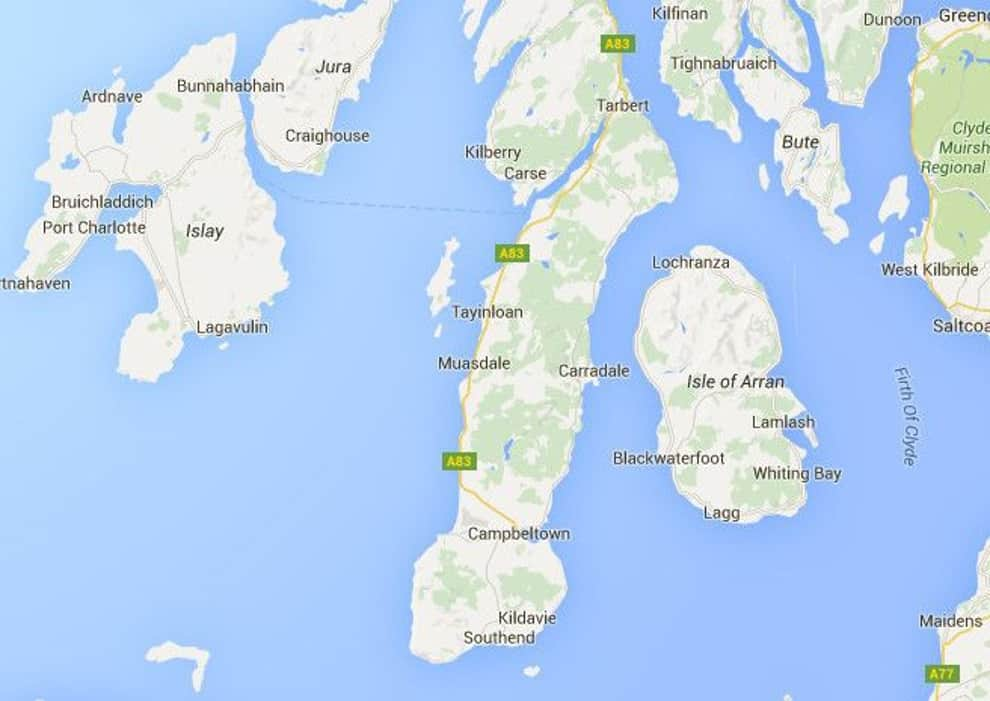
Thomas Cairns Sr.

A church record documents Thomas Cairns from Campbelton building the A’Chleil church in 1789. It replaced the condemned Killean church that was two miles north. From about 1672 until 1696, John Cunison was a Covenanting minister.
Thomas was the source of the Cairns family in King Township Ontario. We do not know where he was born, nor do we know the name of his wife. He and his wife had four children: Thomas Jr(1775), Margaret (1778), William (1780), and Agnes(1783) all born in Campbelton.
Except for Margaret the three other children, their families, and their mother emigrated to York County Ontario around 1830-31 to work, purchase farmland and start a new life. Thomas jr married Anne McIntyre (who was previously married to Robert Campbell and had a daughter Janet Cambell) and worked as a shepherd on Kintyre. Thomas, Anne, his mother and sister Agnes lived with or near his son William in Vaugn Township, Ontario. We do no have a recorded of where their burial sites are.
Huntsville


James Cairns moved to Huntsville in 1900 to work at the Tannery. He had sold the original family farm in King Township to his brother and moved in with his wife Christina and their four children. Kelso met his future wife in Huntsville, Edith Mae Heath.
Albert Heath moved to Huntsville in 1876 to claim land and start a lumber company. Heath, Tait and Turnbull company was built beside the railway at the foot of Yonge Street in 1886. The company is located on land owned by George Elliott. In 1892 the company’s name was changed to the Huntsville Lumber Company. Mr. Heath’s name was gone by 1899.
Singleborough
The Youngs had farmed in Singleborough, Bucks County for generations. They were tenant farmers who rented farmland from a landowner. Singleborough is a Hamlet within the Parish of Great Horwood. Great Horwood is a village and a parish in Winslow district, Bucks (Buckinghamshire). The village stands 2½ miles NE by N of Winslow. Winslow was once a market town. The parish also includes the hamlet of Singleborough and comprises 3,109 acres.
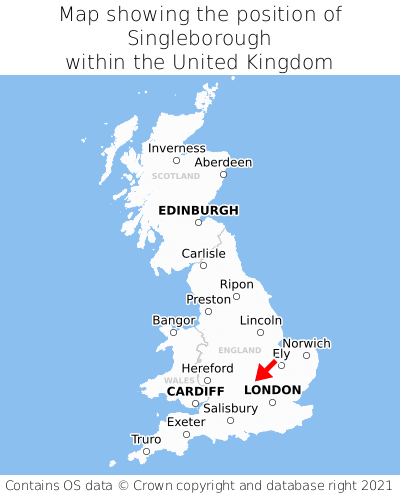
Singleborough was a settlement in the Domesday Book in the hundred of Mursley Singleborough had a recorded population of 12 households in 1086. Mursley was once a more important village and was designated as a market town by virtue of a royal charter granted in 1230. Hundreds (the origin of this name is obscure) were the main administrative subdivisions of a county, with a significant role in financial, military, judicial, and political matters centred upon the Hundred court, which met monthly. Counties were the primary structural element of the Domesday Book. There were 31 counties in Great Domesday. Each county was divided into fiefs, each fief into Hundreds, each Hundred into vills, and each vill into manors.
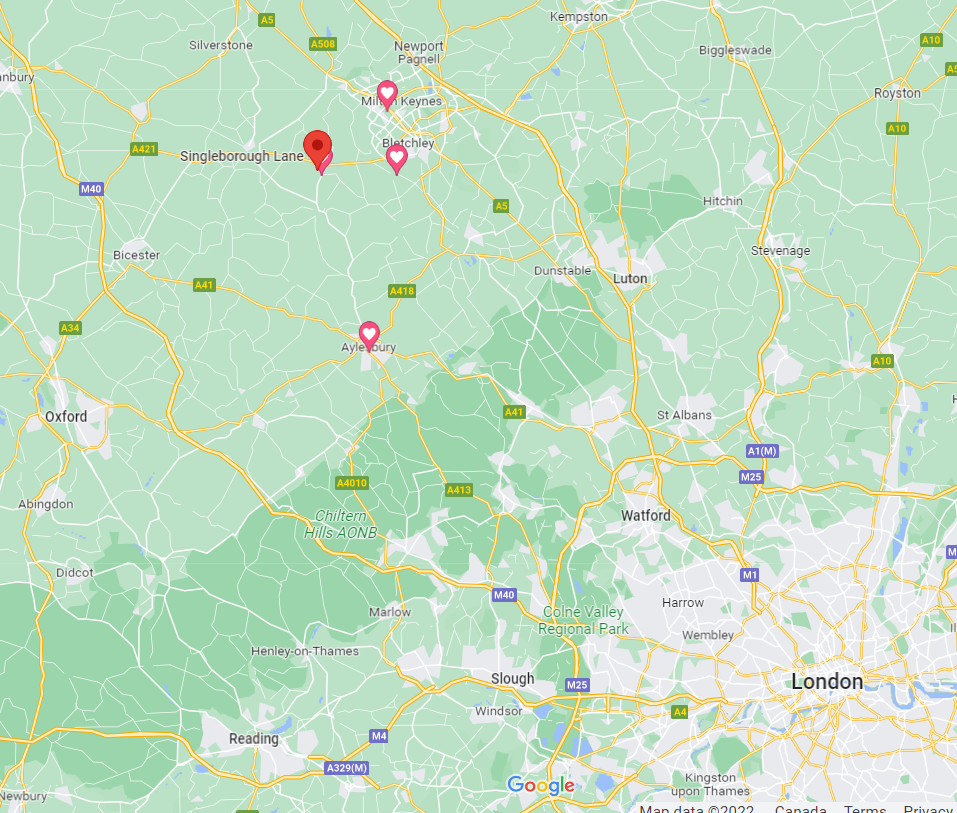
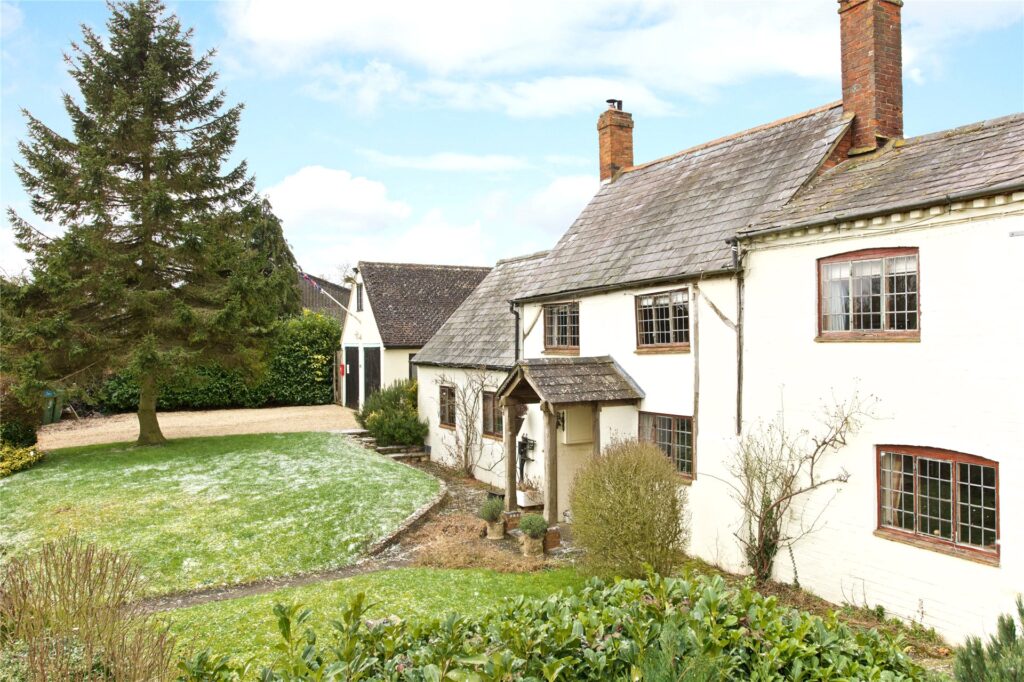
Edwin Young and Elizabeth Ridgeway
Edwin Young was a farmer born in Newton-Longville, Buckinghamshire, in 1816. He was one of seven children of Thomas Young and Martha Sears.
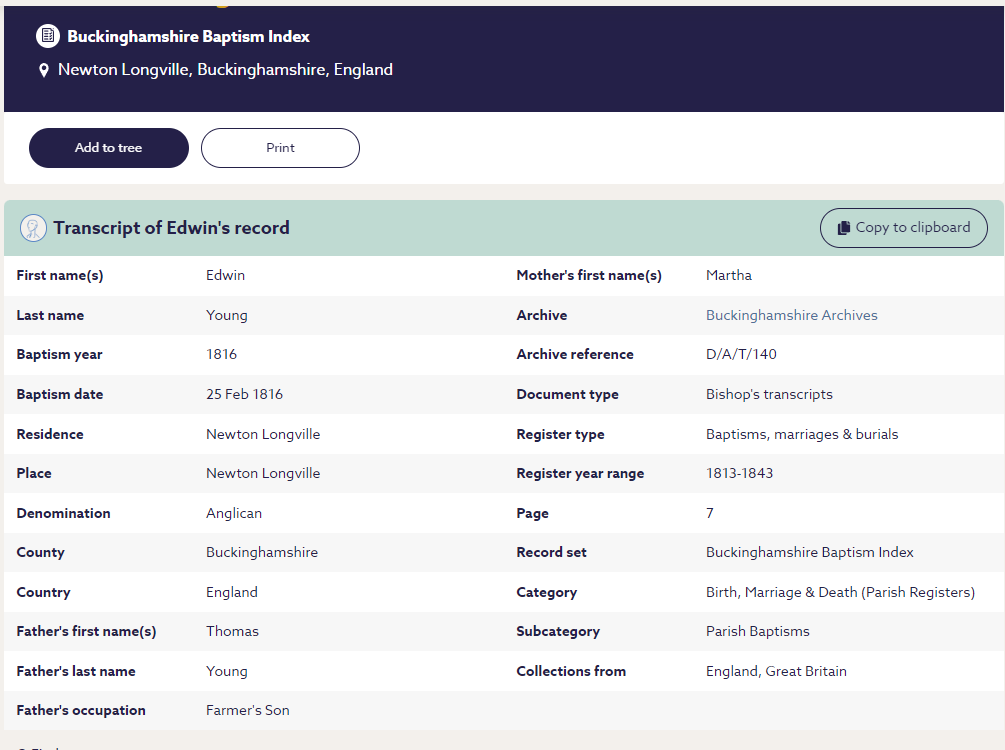
By the 1841 census, Edwin had moved to Singleborough, married, and had a son Edwin, age 1. His first child Joseph had died as an infant. The distance from his birthplace to Singleborough was 7 miles.
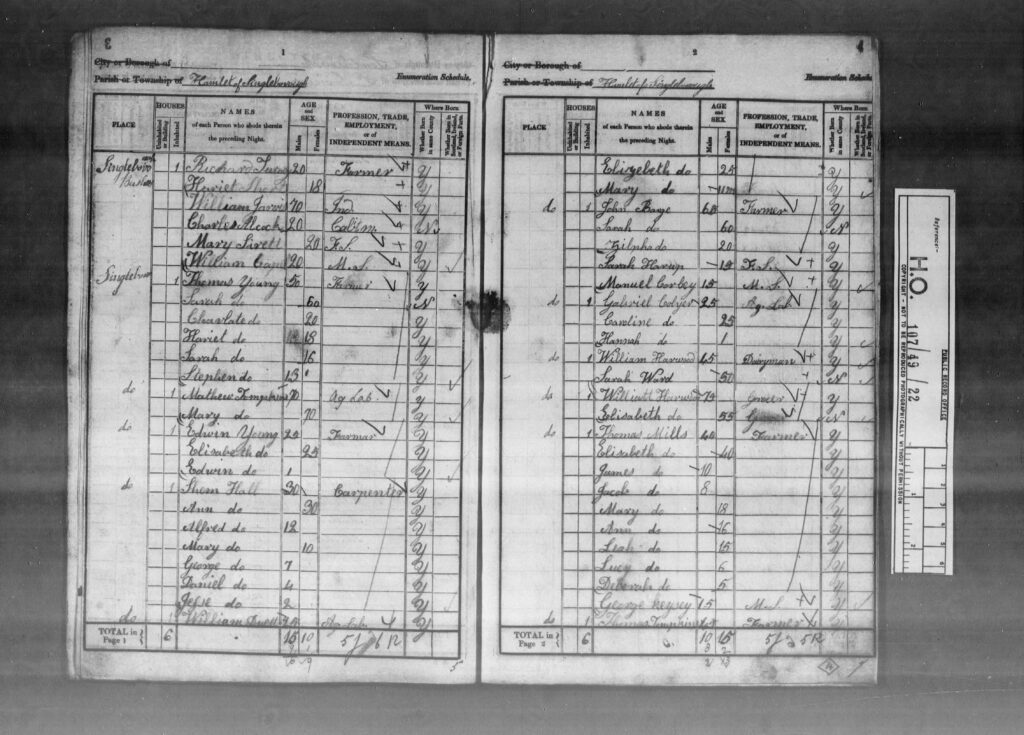
In 1851 he had five children, 60 acres of land and two labourers to work on the farm.
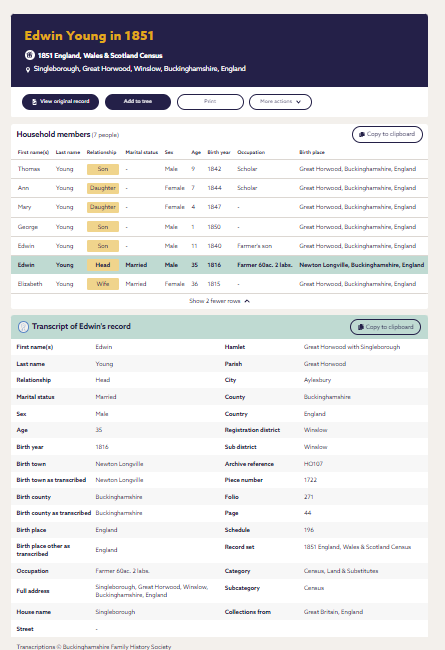
Annie Young
Anne or Annie Young was born in February 1975 in Singleborough, Buckinghamshire, England. She was the third child of George Young and Hannah Mumford.
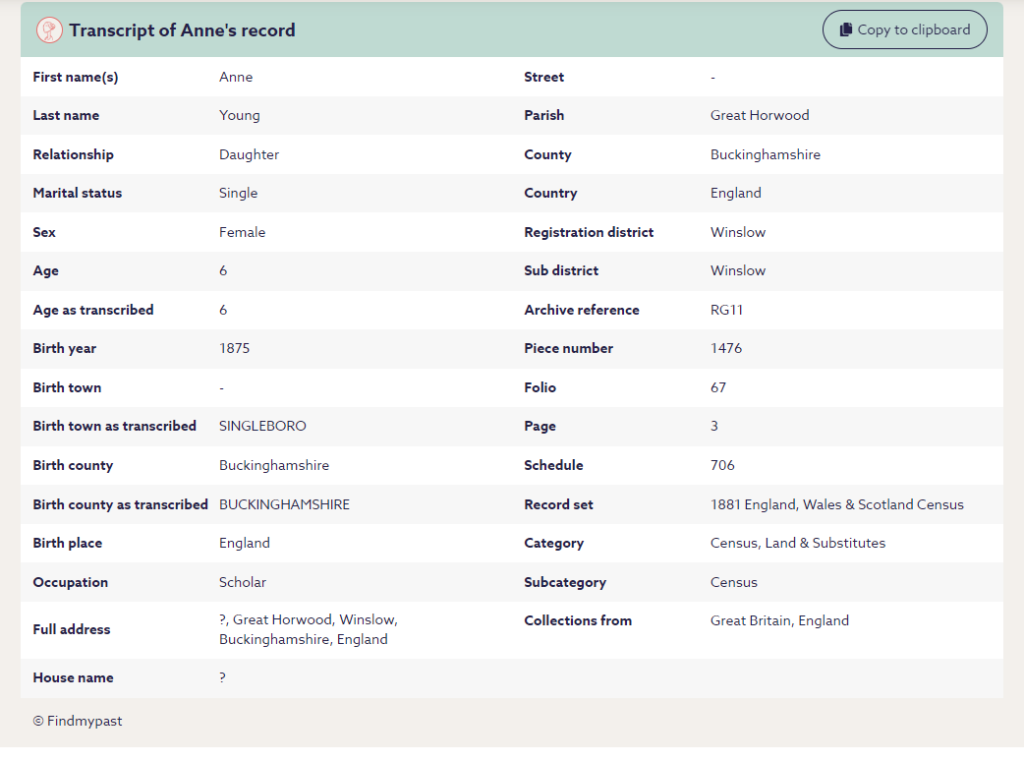
Her father, George, was a farmer. In the 1881 Census, he is listed as having 50 acres and employing 3 men and one boy on a farm at Great Horwood.
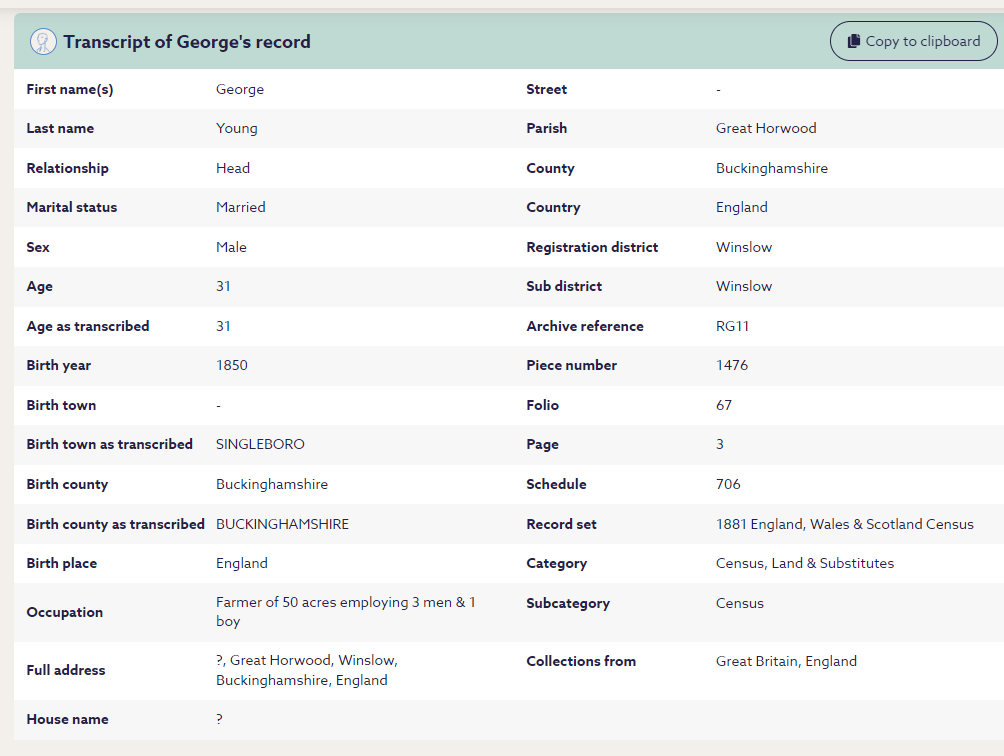
By the 1891 census, the family had moved to Bletchley and lived at the Rectory Farm. There was no longer a mention of 50 acres.
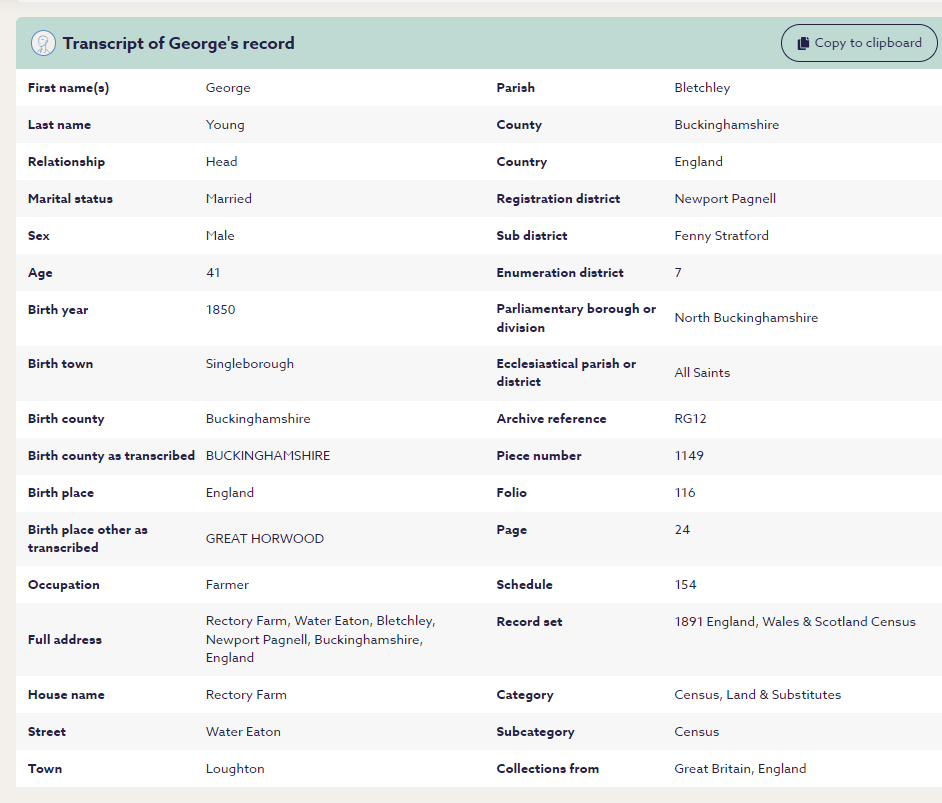
It is unclear if this change of circumstance caused him to move the entire family to New Westminister B.C. in 1893 when Anne was 18. Anne travelled on her own on The Germanic, A White Star Line steamship that travelled from Liverpool to NYC once a month. It carried 359 people. Her occupation is that of a housemaid.
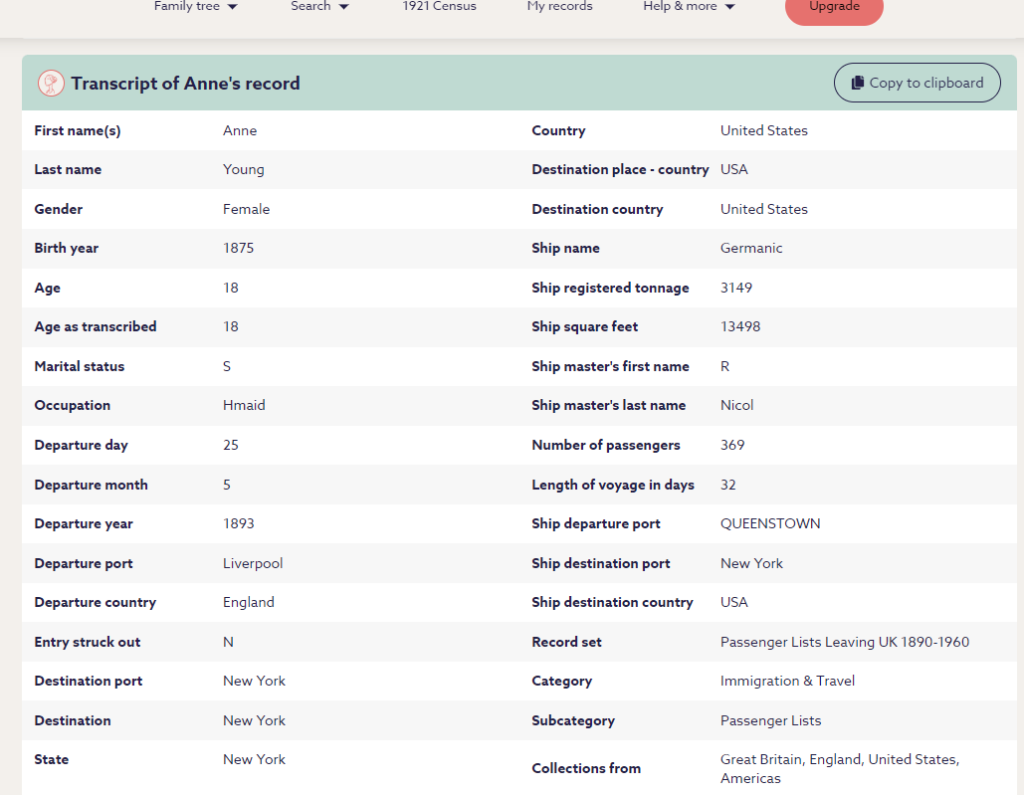
Once she arrived in Canada, she met and married Robert Kerr. Robert and Annie were married on Dec 26, 1895, in B.C. They came to Alberta in 1906 to homestead with their family of three; Edwin, Ian and Iva. A fourth child Ina was born in Alberta but lived only for a few months.